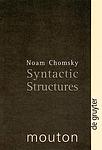Noam Chomsky
Noam Chomsky is a renowned linguist, philosopher, cognitive scientist, historian, social critic, and political activist. He is often referred to as the father of modern linguistics and is also a major figure in analytic philosophy. Chomsky has authored over 100 books on topics such as linguistics, war, politics, and mass media.
Books
This list of books are ONLY the books that have been ranked on the lists that are aggregated on this site. This is not a comprehensive list of all books by this author.
-
1. Syntactic Structures
This groundbreaking work introduces the theory of generative grammar, revolutionizing the study of linguistics by arguing that the structure of language is innate to the human mind rather than learned through social interaction. The book presents a new approach to the study of language, suggesting that linguistic structures are not simply mirrors of social realities but are governed by universal rules and principles. It also introduces the concept of transformational-generative grammar, a framework for describing the syntactic structures of language.
The 2788th Greatest Book of All Time -
2. Manufacturing Consent
The book explores how the mass media in the United States serves as a propaganda system that promotes the interests of the elite economic, political, and social groups. It introduces the "propaganda model" to explain the forces behind media biases, arguing that the concentration of media ownership, the influence of funding sources, and the reliance on official information sources result in a systematic filtering of news that supports the agendas of those in power. Through detailed case studies, the authors demonstrate how this model leads to media coverage that often obscures important truths and shapes public opinion in ways that benefit the dominant elite groups at the expense of democratic discourse.
The 4778th Greatest Book of All Time -
3. The Fateful Triangle
"The Fateful Triangle" explores the complex relationships and political dynamics between the United States, Israel, and Palestine. The book critically examines how U.S. foreign policy, particularly its unwavering support for Israel, has impacted the Israeli-Palestinian conflict. Through a detailed analysis of historical events, media coverage, and political rhetoric, the author argues that this triangular relationship has perpetuated injustice and hindered a peaceful resolution in the Middle East. The work challenges readers to reconsider the narratives commonly accepted in Western media and political discourse, advocating for a more nuanced and equitable approach to Middle Eastern politics.
The 6559th Greatest Book of All Time


